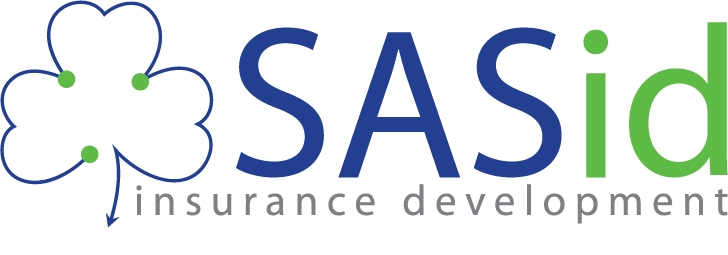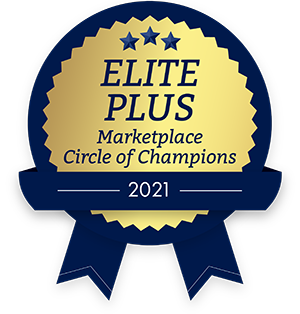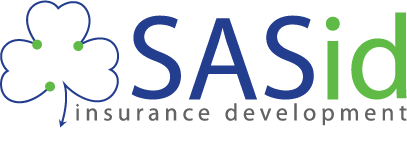Qualifying Life Events
For A Special Open Enrollment Period
Obtaining New Major Medical Insurance
Outside Of Annual Federal Open Enrollment (Nov 1 through Dec 31)
Qualifying Life Events
The following life events will qualify you for a special open enrollment period to select new Affordable Care Act certified health insurance.
Changes in household
You may qualify for a Special Enrollment Period if you or anyone in your household in the past 60 days:
- Got married. Pick a plan by the last day of the month and your coverage can start the first day of the next month.
- Had a baby, adopted a child, or placed a child for foster care. Your coverage can start the day of the event — even if you enroll in the plan up to 60 days afterward.
- Got divorced or legally separated and lost health insurance. Note: Divorce or legal separation without losing coverage doesn’t qualify you for a Special Enrollment Period.
- Died. You’ll be eligible for a Special Enrollment Period if someone on your Marketplace plan dies and as a result you’re no longer eligible for your current health plan.
Do You Qualify?
Changes in residence
Household moves that qualify you for a Special Enrollment Period:
- Moving to a new home in a new ZIP code or county
- Moving to the U.S. from a foreign country or United States territory
- If you’re a student, moving to or from the place you attend school
- If you’re a seasonal worker, moving to or from the place you both live and work
- Moving to or from a shelter or other transitional housing
Note: Moving only for medical treatment or staying somewhere for vacation doesn’t qualify you for a Special Enrollment Period.
Important: You must prove you had qualifying health coverage for one or more days during the 60 days before your move. You don’t need to provide proof if you’re moving from a foreign country or United States territory.
Do You Qualify?
Loss Of Health Insurance
You may qualify for a Special Enrollment Period if you or anyone in your household lost qualifying health coverage in the past 60 days (or more than 60 days ago but since January 1, 2020) OR expects to lose coverage in the next 60 days.
The qualifications for a special enrollment period for loss of health insurance are below.
Losing Employer Health Insurance
You may qualify for a Special Enrollment Period if you lose health coverage through your employer or the employer of a family member, including if you lose health coverage through a parent or guardian because you’re no longer a dependent.
Important: Voluntarily dropping coverage you have as a dependent doesn’t qualify you for a Special Enrollment Period unless you also had a decrease in household income or a change in your previous coverage that made you eligible for savings on a Marketplace plan.
Losing Individual Health You Bought Yourself
You may qualify for a Special Enrollment Period if you lose individual health coverage, including if:
- Your individual plan or your Marketplace plan is discontinued (no longer exists).
- You lose eligibility for a student health plan.
- You lose eligibility for a plan because you no longer live in the plan’s service area.
- Your individual or group health plan coverage year is ending in the middle of the calendar year and you choose not to renew it.
- Your household income decreased, and now you qualify for savings on a Marketplace plan.
Important: Losing individual coverage doesn’t qualify you for a Special Enrollment Period if you lose coverage because you didn’t provide required documentation when the Marketplace asked for more information.
Losing Coverage Through A Family Member
You may qualify for a Special Enrollment Period if you lose qualifying health coverage you had through a parent, spouse, or other family member.
This might happen if:
- You turn 26 (or the maximum dependent age allowed in your state) and can no longer be on a parent’s health plan.
- You lose job-based health coverage through a family member’s employer because that family member loses health coverage or coverage for dependents.
- You lose health coverage through a spouse due to a divorce or legal separation.
- You lose health coverage due to the death of a family member.
- You lose health coverage through a parent or guardian because you’re no longer a dependent.
Important: Voluntarily dropping coverage you have as a dependent doesn’t qualify you for a Special Enrollment Period unless you also had a decrease in household income or a change in your previous coverage that made you eligible for savings on a Marketplace plan.
Losing Eligibility For Medicaid Or CHIP
You may qualify for a Special Enrollment Period if you lose Medicaid or Children’s Health Insurance Program (CHIP) coverage because:
- You lose your eligibility. For example, you may have a change in household income that makes you ineligible for Medicaid, or
- you may become ineligible for pregnancy-related or medically needy Medicaid.
- Your child ages off CHIP.
Losing Eligibility For Medicare
You may qualify for a Special Enrollment Period if you become no longer eligible for premium-free Medicare Part A.
You don’t qualify for a Special Enrollment Period if:
- You lose Medicare Part A because you didn’t pay your Medicare premium.
- You lose Medicare Parts B, C, or D only.
Do You Qualify?
Employer Offers QSEHRA or ICHRA
You may qualify for a Special Enrollment Period if you or anyone in your household newly gained access to an individual coverage HRA or a Qualified Small Employer Health Reimbursement Arrangement (QSEHRA) in the past 60 days OR expects to in the next 60 days.
Note: Your employer may refer to an individual coverage HRA by a different name, like the acronym “ICHRA.”
Generally, you’ll need to apply for and enroll in individual health insurance before your individual coverage HRA or QSEHRA starts. However, your employer may offer different options for when your individual coverage HRA or QSEHRA can start so you have more time to enroll.
Do You Qualify?
Additional Qualifying Life Events
Other life circumstances that may qualify you for a Special Enrollment Period:
- Gaining membership in a federally recognized tribe or status as an Alaska Native Claims Settlement Act (ANCSA) Corporation shareholder
- Becoming newly eligible for Marketplace coverage because you became a U.S. citizen
- Leaving incarceration
- Starting or ending service as an AmeriCorps State and National, VISTA, or NCCC member
Do You Qualify?
Terminology To Know
Certified ACA Plan
An Affordable Care Act policy must meet 10 minimum essential services. These include, emergency services, abulatory patience services, hospitilization, prescription drug benefit, laboratory services, mental health and substance use disorders, hospitilization, pediatric services, rehabilitative services, preventative and chronic disease management.
What is an exchange?
An exchange is simply a platform for enrolling. An exchange may be online or a licensed agents can help enroll in person or over the phone.
What are the types of exchanges?
“On-exchange” – Have health insurance plans that are available on the
“Off-exchange” – Are private marketplaces that have ACA certified health insurance. Plans may be purchased directly from an insurance company, or with the help of a broker, like SASid. Cost-sharing and premium subsidies are not available if you buy an off-exchange plan, even if you’d otherwise be eligible. You may not claim the premium subsidy on your tax return if you bought an off-exchange plan.
Off-Exchange ACA Compliant Health Insurance
Most people will shop a private off-exchange marketplace to look for Affordable Care Act health insurance if they do not qualify for a federal or state subsidy.
Advantages of private Off-Exchange Marketplace
- Same plans as healthcare.gov with the same prices
- Fewer questions in the enrollment process
- Call licensed insurance agents for advice (free)
On-Exchange Health Insurance
Examples of subsidized coverage include Medicaid and the Children’s Health Insurance Program (CHIP). Marketplace insurance plans with premium tax credits are sometimes known as subsidized coverage too.
- In states that have expanded Medicaid coverage, your household income must be below 138% of the federal poverty level (FPL) to qualify.
- In all states, your household income must be between 100% and 400% FPL to qualify for a premium tax credit that can lower your insurance costs.
- If your income is above 400% FPL, you may still qualify for savings on a 2021 Marketplace health insurance plan.
About SASid
SASid insurance development’s mission is to make health insurance simple to understand. Recognized by the Department of Health and Human Services, we’ve helped hundreds of thousands of people understand and access Affordable Care Act compliant insurance.

Licensed and Healthcare Certified Consultants
We’re here to help answer questions.
Hours of Operation:
M – F, 7:00 A.M. – 4:00 P.M. EST
If you have an issue with your enrollment, please email [email protected] with a screenshot of your issue.

